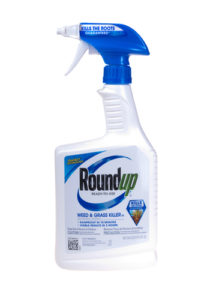Whistleblower hits big with SEC’s $80 million settlement over Monsanto’s “ultimate killing machine”

Only a day after the SEC announced that agro-giant Monsanto would pay an $80 million penalty to settle charges of accounting improprieties in connection with sales of its flagship product Roundup, attorney Stuart Meissner has said that he represents the whistleblower who brought the matter to the SEC’s attention. If true, under the rules governing the SEC’s whistleblower program, Mr. Meissner’s client could be awarded up to 30% of the SEC’s recovery, or $24 million.
An SEC investigation found that over the course of several years, Monsanto booked substantial revenue derived from a rebate program designed to boost sales of Roundup, but failed to recognize related program costs at the same time, in violation of Generally Accepted Accounting Principles. Generic competition for the weed killer ha d undercut Monsanto’s prices and resulted in significant loss of market share. The rebate program, aimed at retailers and distributors, was intended to reverse some of these losses. The rebate program may have been successful in doing so, but as a result of insufficient internal accounting controls, Monsanto failed to properly account for the costs of the program in the appropriate reporting periods. As a result, Monsanto materially misstated is consolidated earnings in corporate filings during a three-year period.
This settlement is remarkable not only for its size and target but for the early identification of the involvement of a whistleblower and the SEC’s “return to its roots” with an action not against a large bank or financial institution involved in sophisticated fraud (the standard fare for SEC settlements these days), but rather against a large public company engaged in classic accounting misstatements. The SEC used its press release announcing the settlement as an opportunity to remind investors and regulated parties that “[f]inancial reporting and disclosure cases continue to be a high priority for the Commission.”
The SEC did not announce the involvement of a whistleblower. The SEC treats the identity of whistleblowers, and their involvement with any particular case, as confidential information. And because whistleblowers frequently face retaliation if their actions are disclosed, they are similarly likely to keep their identities under wraps. As a result, generally the existence of a whistleblower is unknown until the SEC makes and announces an award. This case is different only because Mr. Meissner, presumably with the blessing of his client, has disclosed that his client exists. All we know at this point is that the client is an employee of Monsanto and that he/she reported internally before turning to the SEC’s whistleblower program. But it’s a safe bet that those keeping an eye on the SEC whistleblower program will be looking for an award between $8 million (10%) and $24 million (30%) in the coming months.
Tagged in: Accounting Fraud, Misrepresentations, SEC Whistleblower Reward Program, Securities Fraud, Whistleblower Case,